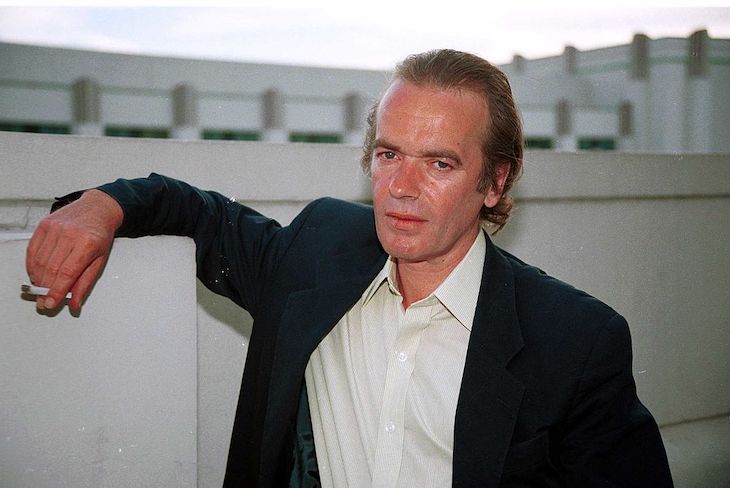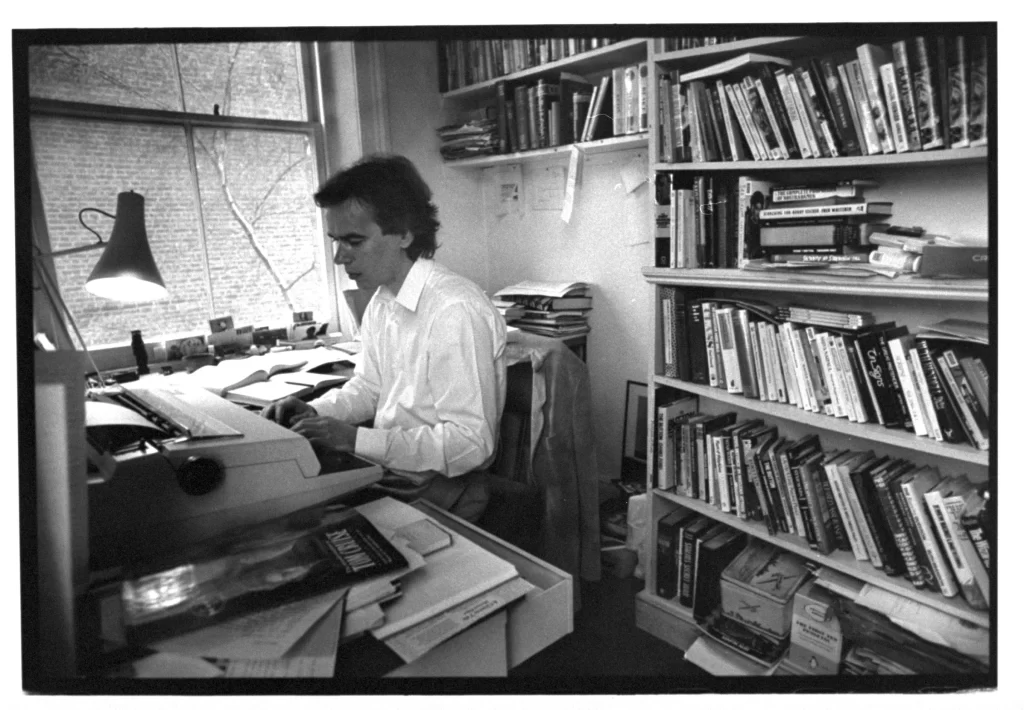
Style is not neutral; it gives moral directions.
— Martin Amis
Milan Kundera came to me too early. As a reader, it wasn’t soon enough, as what relatively inexperienced but enthusiastic amateur—fresh from the front lines of grad school and adjusting to no longer deconstructing texts with an eye toward acing the assignment—won’t benefit from that kind of sophisticated, globally sanctioned guidance, at any age? Still, as an aspiring writer, taking a deep dive into the Unbearable Lightness of Brilliance had the odd effect of inspiring me, only too much. You read that sort of accumulated wisdom and suddenly feel like a desperate creature trudging miles through the African heat in search of an oasis: you finally happen across a patch of water, lapping up every ounce of nourishment, half insane with relief and oblivious to the crocodiles lurking hungrily in the shallows. Reading Kundera at any age, but particularly as an aspiring writer with a future filed under “TBD,” you don’t just want to write like him, you want to be him, because, on some level you understand that in order to write like that you have to have lived like that. Eventually—and the sooner the better—you recognize it’s an impossibility. Choices narrowed to one, you lick your wounds, and get back to where you once belonged.
Martin Amis, on the other hand, was just what the doctor ordered, a few years and many mediocre drafts of a first novel later. Recommended by a recently transplanted British workmate (because of course) who was kind enough to lend me his copy of Money. I subsequently learned this was a ritual, accompanied by the acknowledgment your previously owned copy shall inexorably be passed along to another, this unspoken assignation handed down the line like a literary inheritance—equal parts gift and responsibility.
Money served at once as impetus and ballast: it was exhilarating enough to make me want to…what? Imitate it? Yes, but more: Money is the sort of book that makes you want to exist within it, to luxuriate in it as if it was some sublime, restorative waterfall. Every writer requires at least one touchstone that’s always there for them, like a parent and, like a parent, comes to be further appreciated despite or because of the flaws.
So, impetus: to be great you have to be good, and before that you have to be middling, and before that you will most likely be very bad indeed. But if being merely bad is what separates the so-so writer from the vast majority who never have the ability, much less dedication to get—and remain—in the ring? Bring it on. And ballast: Amis’s prose is unapproachable enough to preclude envy, so you reorient yourself at the very bottom of the creative food chain and get busy being bad for as long as it takes.
Debate can (and should) rage about the so-called great American novel. Has there been one? Two answers. First, who cares? Second, yes, several, among them Moby Dick, The Great Gatsby, Invisible Man, The Things They Carried, and ___ insert something by Faulkner, Toni Morrison, and anything by Flannery O’Connor (sure, “A Good Man is Hard to Find” qualifies as a great American novel, even though it’s “only” a short story). But no American got the late 20th Century America in his or her sights as perfectly as the very British Amis does with Money. It was over the top, by design, and while satirical arrows hit their mark page after page, it’s depressing to note that one of the world’s funniest novels is now almost quaint, America having a ceaseless capacity to debase and outdo itself. Money, needless to say, was written before Twitter, before reality TV, before President Trump. Or, as the master himself opined, “being more or less unembarrassable, Americans are fatally attracted to the embarrassing.” That’s a mic drop from a career filled with them.

Here’s the thing: there really is no one else like Martin Amis. With the exception of Money, there’s no novel of his I enjoy without reservation; some are too long, some too one-note, others too many (unconvincing) notes, yet one cannot help but enjoy the words. On a line-by-line level, it’s always pure pleasure; there’s always the intelligence, the sensitivity, the style. Amis was simply too talented to bother with consistency or petty issues like plot or connecting the narrative dots. Money succeeds as a novel entirely driven by voice and that style, the first hundred or so hilarious pages comprising a near overdose of sensory delight: all the images, scenes, and sentence-after-sentence a literary kitchen where everything on offer is first-rate and free of charge. It’s (pick your comparison) like watching Jordan in the mid-90s, or Pacino in the mid-70s, or The Stones in the late-60s: a rarified air of mastery, unspooling in real time, absolutely beyond belief but somehow, miraculously, right there in front of you. And better still, like the best art it can be returned to—savored and studied.
As an essayist and critic, Amis easily ranks amongst our most proficient, seemingly without peer in terms of his range and scope. Once Amis offers judgment—on a book, an occasion, a politician, whatever—it stays judged, definitive upon arrival. The War Against Cliché was his aesthetic mission statement: he wrote about the same things (in his novels and his essays) everyone else does, but his take on any topic is not only distinctive, but unfettered, and permanent. Who knows or cares if this is the pressure he put on himself to make every effort a tour de force, or if he was truly as disproportionately talented as he seemed.
Reading his non-fiction is like riding in a plane. As you cruise over miniaturized skyscrapers, crop circles, mountains, even oceans, you recognize—and remember—how tiny and insignificant your own piece of turf (wherever you came from; wherever you’re going) actually is. Amis’s works seems all-encompassing, and it’s enough, at times, to fill one with diffidence and awe. But mostly delight.
Whatever else one can say about Amis, there’s never doubt that he cared deeply about language. More, he understood, and used words with the same type of facility that, say, Richard Pryor used voice(s) and Miles Davis used silence. His genius with words is our joy, and Amis can take a topic already beaten to death (Vegas, Trump, pornography) and render it not merely fresh, but imperative. Even if the reader isn’t aware or interested in the subject matter, Amis makes it interesting and enjoyable, recommended to anyone for whom old-fashioned deliberation and erudition matter.
Arguably the highest praise we can bestow upon any storyteller is that they are a writer’s writer (fame and fashion are fleeting), and for a critic that they are a reader’s writer (tastemakers are seldom the ultimate arbiters of posterity). Martin Amis, at his best, was consistently both, and in our increasingly post-history and two-sentence assessment era, this skill set is exceedingly rare, and indispensable. His best work is imperishable — and will accrue value once, in a world without Martin Amis, we fully and finally grasp how irreplaceable he is.
